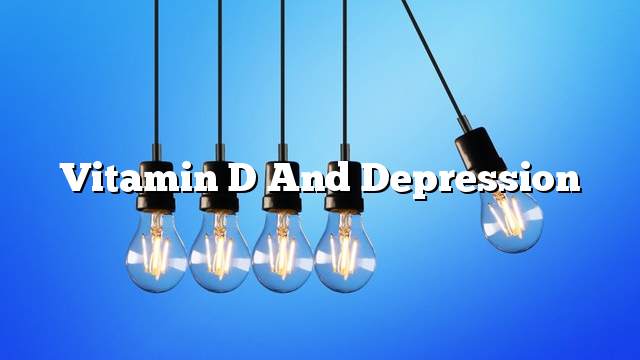Vitamin D
Is a group of vitamins that melt fat, the only vitamin in the human body, which is unique, because the body can make it from cholesterol when exposed to sufficient time to the sun, so sometimes called vitamin sunlight. Vitamin D is not a basic dietary vitamin in the detailed sense; it is an organic chemical compound, which is scientifically called vitamin only when it is not available enough in the body.
Vitamin D has many health benefits for the body and when it is deficient, it leads to some annoying symptoms. During this article we will present you the most important benefits of vitamin D, its sources, highlighting its importance for depression.
The most important benefits of vitamin D.
- Maintains bone health significantly and protects against osteoporosis; it helps the bones to absorb calcium significantly, so it strengthens the bones and maintains its density.
- Strengthens the immune system in the body and thus prevents some diseases.
- It protects against certain cancers and chronic diseases.
- It protects against rickets, especially in children.
The most important symptoms of vitamin D deficiency
- Fatigue and chronic fatigue in all parts of the body.
- The feeling of constant pain.
- Infection with certain immune diseases such as multiple sclerosis and arthritis.
- Severe head sweating.
- Osteoporosis and increase in muscle pain and feeling stiffness and convulsions when waking up from sleep.
- Obesity and sudden weight gain. The high concentration of fat in the body affects vitamin D in the blood, as it is a fat-soluble vitamins and therefore the higher the proportion of body fat, the lower the vitamin D, so people who suffer from obesity need quantities Larger than vitamin D.
- Some intestinal problems.
Sources of Vitamin D
- Fish of various kinds.
- whale liver oil.
- eggs.
- Caviar.
- Dairy products.
- Mushrooms.
- Breakfast Cereal.
- Milk fortified.
- Exposure to the sun for sufficient periods, and the period between 10 am and 3 pm is the best periods of exposure to the sun; the sun is perpendicular to the ground.
Vitamin D and Depression
According to recent findings, depression is one of the most common symptoms of vitamin D deficiency. Vitamin D improves neurotransmitter serotonin levels, which significantly raises morale in the human body. Thus, lack of it leads to low mood, motivation and tiredness. Fatigue and sleep disorders.
